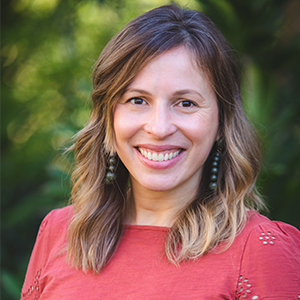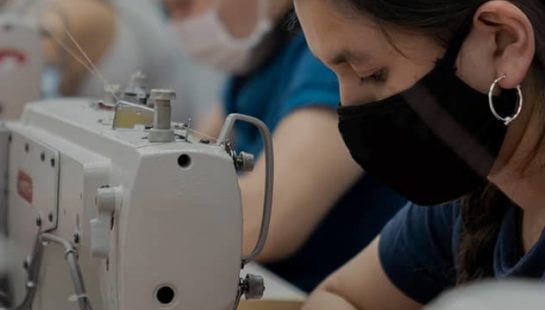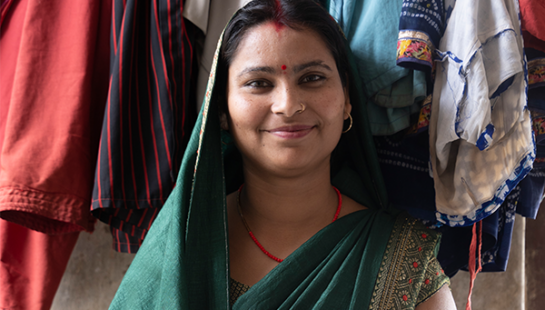It’s clear that fashion companies have their backs against a wall and can no longer ignore the call to escalate the pace of change. Following the global pandemic, burgeoning climate crisis, recent natural disasters and economic downturn, the future for garment workers has never felt less certain.
But out of uncertainty is birthed an opportunity to rethink our current values and redesign our systems. We are part of an ethical fashion movement: a global movement made up of organisations, certifiers, purpose-driven businesses, garment workers and global citizens, working together to disrupt the fashion system. Our movement has grown over the last decade, with more taking up the call to act.
The Special Edition Ethical Fashion Report reviews the fashion industry’s progress over the last decade. Assessing the data we have collected over the last ten years, we were inspired to project how the industry as a whole is likely to progress over the next decade, if the pace of the 25 companies we assessed between 2013 and 2022 continues.
Our projections
Working from the assumption that the full 120 company cohort assessed will mirror a similar pace of change to the 25-company group, and using all companies’ 2022 scores as a baseline, we project that:
- It will be 30 years before all companies achieve traceability of the majority (>75%) of their raw materials producers (e.g. cotton farms), and 27 years before they achieve traceability of the majority of their inputs supplier (e.g.fabric mills).
- It will be 75 years before all companies are paying a living wage at a minimum of one final stage factory (not all).
- It will be 17 years before all companies have a grievance mechanism available to workers at a minimum of one factory (not all), which enables workers to raise issues of exploitation and safety concerns when they arise.
At Baptist World Aid, we are committed to the proposition that in a world driven by profits and power, justice and love matter above all. The ideas and hopes of those most significantly impacted by the fashion industry should be the voices most clearly heard–the workers and communities whose livelihoods and wellbeing rely upon a better tomorrow for them, their families, and generations to come. Our common humanity, our collective goodwill and desire for change are key to creating a long-term, sustainable change. We can and we must act now.
Our manifesto for a better fashion system.
Inspired by their voices and lived experiences, we see a world where workers:
- are not exploited for commercial gain but experience economic dignity through payment of living wages;
- who have been subjected to suffering and harm are heard, rehabilitated and compensated;
- feel safe in their workplace, and free to speak out or form collective action groups to protect their rights and co-create bold solutions.
We see a world where fashion companies:
- redefine success to put human rights and environmental justice over profits;
- take effective action that delivers on their policies and commitments, bringing about better conditions for workers throughout their supply chain;
- admit when ‘solutions’ are not working and mistakes have been made, seeking to innovate and improve their business practices;
- are transparent about their supply chain practices, with senior leaders rigorously involved in ethical sourcing decisions and accountable for their actions;
- use their collective power to create systemic change.
We see a world where the planet:
- is protected and restored from the damaging impact of over-production, the use of toxic materials and processes and textile waste;
- and the precious, finite resources it provides us with are taken sustainably, used with care, and reproduced in a regenerative way;
- is prioritised in all business decisions as we build a circular economy;
- is thriving and supports the health and wellbeing of all its inhabitants.
We see a world where global citizens:
- make informed clothing purchases, respecting the time, resources and skills that went into making them;
- seek to reduce the environmental impact of their clothes in-use, buy as sustainably as possible, and thoughtfully dispose of them through repurposing and recycling;
- advocate for fashion companies to escalate the pace of change, and for governments to hold them accountable;
- share what they know about ethical fashion with their networks, imploring them to join the movement.
We see a better world for all. Will you help us reach it?
The Special Edition Ethical Fashion Report is a comparison of existing data sets examining company progress since the publication of the first Ethical Fashion Report in 2013. The findings examined in this report are based on previously conducted research published in the 2013 Australian Fashion Report and the 2022 Ethical Fashion Report. Both reports were produced by Baptist World Aid.
For the projections, Baptist World Aid analysed the pace of change for the 25 companies assessed consecutively between 2013 and 2022. The projections referenced use the 2022 results from the full 120 company cohort as a baseline, and work from the assumption that this cohort could mirror a similar pace of change to the 25-company microcosm.



 Baptist World Aid
Baptist World Aid

 Sophia Russell,
Sophia Russell,